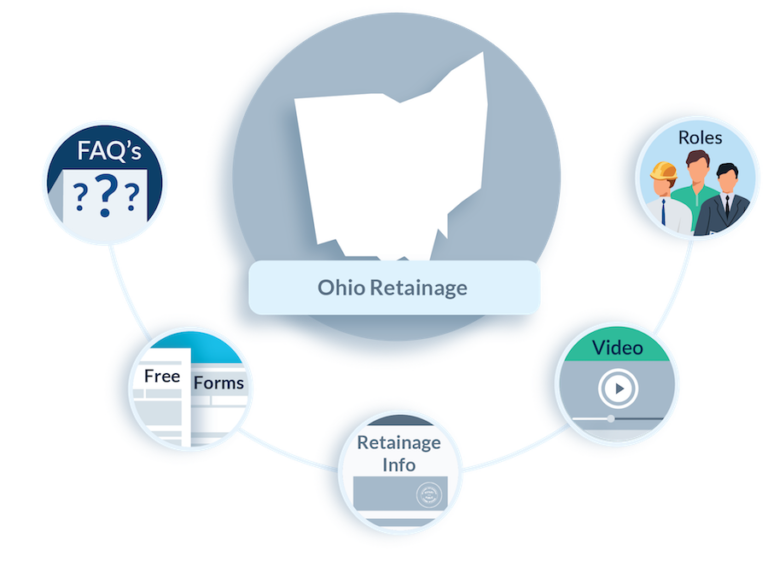Ohio Retainage Requirements
- Private Jobs
- Public Jobs
- Top Links
Retainage Limit
For projects (other than residential projects of 1 to 3 detached dwelling houses), retainage is solely based on the contract between the parties.
Pay Period
Determined by the terms of the contract.
There is a Process to Recover
Solely set forth by contract.
Not Held In Escrow
In Ohio, contractors and owners do not need to hold retainage funds in a separate escrow account.
8 Percent
Retainage cannot exceed 8%. After 50% completion of the project, no additional retainage is allowed.
Pay Period
When the major portion of the project is substantially completed and occupied, or in use, or otherwise accepted, the public entity must release retainage within 30 days. Once received, retainage must be paid to subs and suppliers within 10 days.,
There's No Process to Recover
Not specified
Held in Escrow
On projects over $15K, upon 50% completion, the retainage withheld must be deposited in an escrow account.
Retainage, also called “retention,” is an amount of money “held back” from a contractor or subcontractor during the course of a construction project. In general, retainage serves two main purposes:
- To provide an incentive to the contractor or subcontractor to complete the project; &
- To give the owner some protection against problems like liens, contractual defaults, delays, and more.
In most states, laws exist to regulate how the parties use the retainage concept, mostly protecting some parties against abuse of the tool from others. The following are resources, legal information, and answers to frequently asked questions about Ohio’s retainage requirements.
Ohio retainage limits and deadlines
Illinois’s retainage statutes only apply to public works project. On all other projects, retainage will be governed by the terms of the contract.
On public construction projects (with the exception of residential projects of 12 units or fewer) the amount of retainage that can be withheld is 8% from each progress payment. Upon 50% completion, no more retainage may be withheld on the remaining progress payments. Also, on projects over $15K, upon 50% completion, the retained funds must be deposited in an escrow account.
The public entity must release any retainage withheld within 30 days of the project’s date of substantial completion or acceptance. Furthermore, once received, retainage must be released to subs and suppliers within 10 days under Ohio’s prompt payment laws.
If the public entity doesn’t release retainage within the specified timeframe, or they fail to deposit retainage in an escrow account, interest will accrue at a rate of 8% per year; in addition to any late payment interest accrued under the prompt payment laws.

